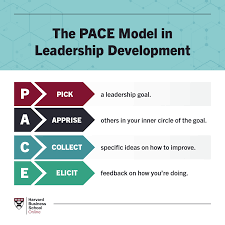The Importance of Business Leadership Development
Business leadership development is a crucial aspect of any successful organisation. Effective leadership is the driving force behind innovation, growth, and sustainability in today’s competitive business landscape.
Investing in leadership development programmes can have a significant impact on the overall performance and success of a company. Strong leaders inspire and motivate their teams, foster a culture of collaboration and creativity, and drive strategic decision-making.
Leadership development helps individuals enhance their skills, knowledge, and capabilities to lead effectively in dynamic environments. It equips them with the tools to navigate challenges, adapt to change, and seize opportunities for growth.
By nurturing future leaders within the organisation through mentorship, training, and coaching, businesses can ensure continuity in leadership succession planning. Developing a pipeline of talented leaders not only strengthens the company’s talent pool but also promotes a culture of continuous learning and improvement.
Effective business leadership development goes beyond traditional management training. It focuses on developing emotional intelligence, communication skills, strategic thinking, and decision-making abilities. These qualities are essential for leaders to inspire trust, build strong relationships, and drive sustainable business results.
In conclusion, investing in business leadership development is an investment in the long-term success and resilience of an organisation. By cultivating strong leaders who can navigate challenges with confidence and lead their teams towards shared goals, businesses can thrive in today’s ever-changing business environment.
Key Benefits of Business Leadership Development: Enhancing Skills, Fostering Innovation, and Driving Organisational Success
- Enhances leadership skills and capabilities
- Fosters a culture of collaboration and innovation
- Drives strategic decision-making
- Promotes talent development and succession planning
- Improves overall organisational performance and success
Challenges in Business Leadership Development: High Costs, Time Demands, and Resistance
Enhances leadership skills and capabilities
Business leadership development plays a crucial role in enhancing leadership skills and capabilities within an organisation. Through targeted training, mentorship, and coaching programmes, individuals can sharpen their decision-making abilities, communication skills, emotional intelligence, and strategic thinking. By honing these essential qualities, leaders become better equipped to inspire their teams, drive innovation, and navigate complex challenges with confidence. Ultimately, the continuous development of leadership skills leads to more effective and impactful leaders who can steer their organisations towards success in today’s competitive business landscape.
Fosters a culture of collaboration and innovation
Business leadership development plays a vital role in fostering a culture of collaboration and innovation within an organisation. Strong leaders who prioritise teamwork and creativity inspire employees to work together towards common goals, share ideas, and think outside the box. By encouraging open communication and valuing diverse perspectives, leadership development cultivates an environment where innovation thrives, leading to the development of groundbreaking solutions and driving the company’s success in a competitive market.
Drives strategic decision-making
Business leadership development plays a crucial role in driving strategic decision-making within an organisation. Effective leaders who undergo continuous development are equipped with the skills and knowledge to analyse complex situations, identify opportunities, and make informed decisions that align with the company’s goals and vision. By fostering a culture of strategic thinking and decision-making among leaders, businesses can navigate challenges, seize opportunities, and stay ahead of the competition in today’s dynamic business environment.
Promotes talent development and succession planning
Promoting talent development and succession planning is a key benefit of business leadership development. By investing in nurturing the skills and capabilities of emerging leaders within the organisation, businesses can build a strong pipeline of talent to ensure continuity in leadership roles. Through mentorship, training, and coaching programmes, companies can identify and develop high-potential individuals who are prepared to take on greater responsibilities in the future. This proactive approach to succession planning not only strengthens the organisation’s leadership bench but also fosters a culture of growth and advancement among employees.
Improves overall organisational performance and success
Business leadership development plays a pivotal role in enhancing overall organisational performance and success. By investing in the growth and development of leaders within the company, businesses can cultivate a culture of excellence, innovation, and collaboration. Strong leaders inspire their teams to achieve goals, make informed decisions, and adapt to changing market dynamics effectively. As a result, improved leadership capabilities lead to increased productivity, employee engagement, and ultimately drive the organisation towards greater success and sustainable growth.
Costly investment
One significant drawback of business leadership development is the costly investment it requires. Implementing comprehensive leadership development programmes can be financially burdensome, particularly for small businesses operating within limited budgets. The expenses associated with training, coaching, and mentorship initiatives can strain financial resources and pose challenges for organisations looking to invest in developing their leadership talent. The high costs involved in such programmes may deter smaller companies from prioritising leadership development, potentially hindering their ability to cultivate strong leaders and drive long-term success.
Time-consuming process
One significant con of business leadership development is the time-consuming nature of the process. Developing effective leaders demands a considerable investment of time and commitment, potentially diverting resources away from other urgent business priorities. The extensive training, mentoring, and coaching required to nurture leadership skills can be a lengthy endeavour, impacting the allocation of resources and delaying the implementation of immediate business strategies. Balancing the need for developing future leaders with addressing current operational challenges poses a dilemma for organisations seeking to enhance their leadership capabilities while managing day-to-day demands efficiently.
Potential resistance
Potential resistance to business leadership development initiatives can arise from some employees who perceive such programmes as burdensome or disruptive to their current responsibilities. They may resist the idea of taking on additional tasks or devoting time to training, fearing that it could impede their daily work routines. Overcoming this con requires effective communication, transparency, and demonstrating the benefits of leadership development not only for individual growth but also for the overall success of the organisation. Addressing concerns and providing support can help mitigate resistance and encourage employees to embrace opportunities for personal and professional development.

